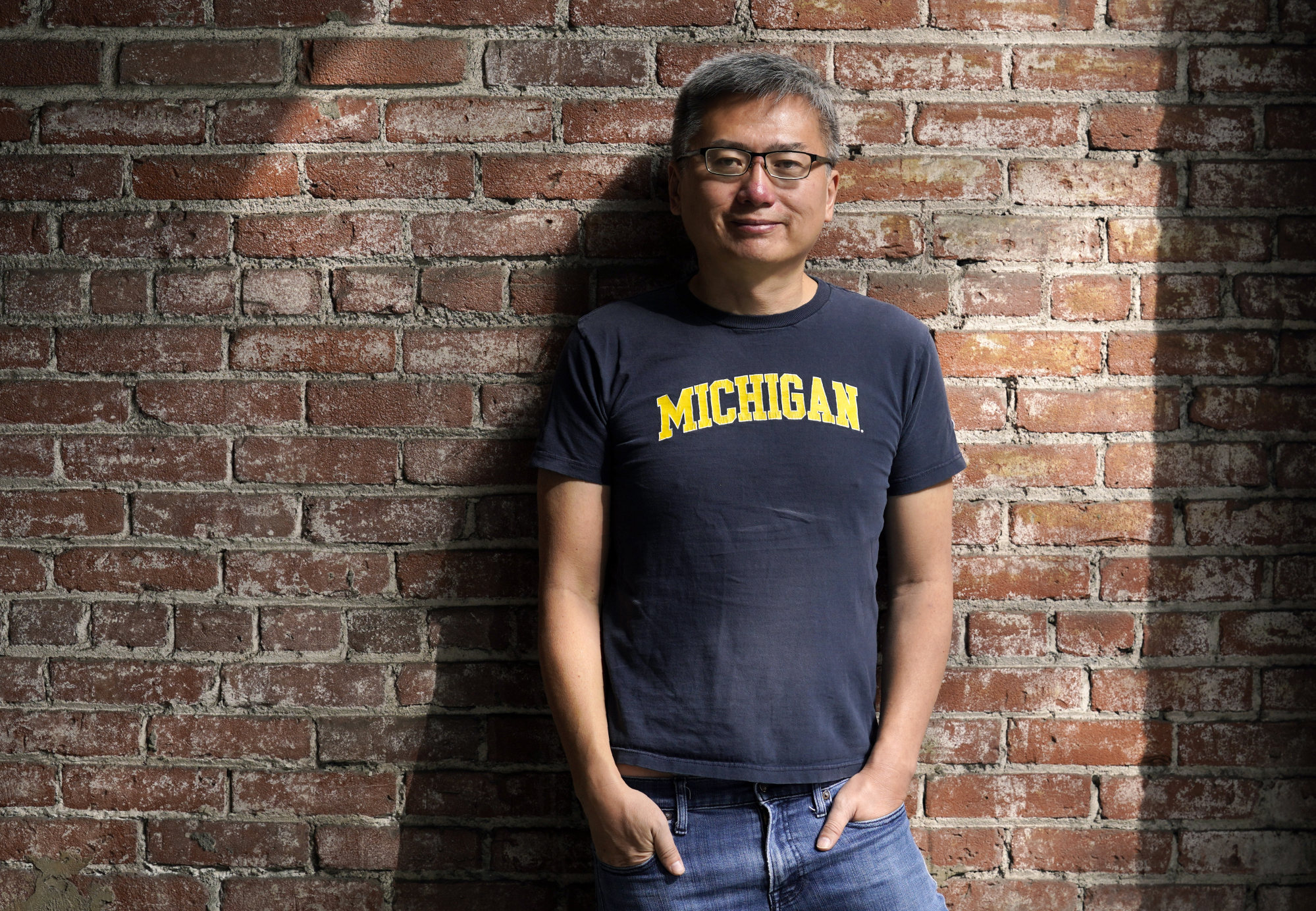Many parents tell their children never talk to strangers. But Curtis Chin’s parents urged their six kids to ask customers at their Chinese restaurant about their background.
It was their way of showing the children a world outside the Detroit restaurant’s four walls.
“That is something my parents taught me – not to be afraid of people, not to be afraid to ask questions, not to be afraid of asking for help even,” Chin says. “I would have to say that the Chinese restaurant and my parents are probably my greatest teachers in life.”

His memoir, Everything I Learned, I Learned in a Chinese Restaurant, is a candid, sometimes funny reflection on growing up Chinese-American and gay in Detroit in the 1970s and 80s.
Chin delves into racism, gay rights and other social justice issues, but not by force-feeding them. Like a welcoming restaurant server, he invites the reader to share in digestible bites of memories from childhood up through to graduating from university. It’s not a “misery memoir”, Chin says.
I’ve spent so much of my life trying to open up opportunities for more … Asian-Americans to tell our stories
The trajectory of the Chin family business matches the ups and downs of Detroit’s Chinatown. Chin’s great-grandfather opened Chung’s Cantonese Cuisine in 1940 in Detroit’s original Chinatown.
The restaurant became a community hub and, like other businesses, relocated in 1960 when the city demolished the area for a highway and other development.
Chung’s moved to Cass Avenue. The Cass Corridor became a second Chinatown. That’s where Chin, born in 1968, spent his formative years. Chung’s closed in 2000, after 60 years and an estimated “10 million egg rolls”.
How Chinatown restaurants and food aren’t what they used to be
How Chinatown restaurants and food aren’t what they used to be
In its heyday, Chung’s drew in customers who varied across race and class. Local politicians, journalists and drag queens are among the patrons Chin recalls in the book. How his parents treated each person made an impression.
“It didn’t matter if you were the mayor of Detroit or if you were the pimp and prostitute standing on the street corner,” Chin says. “They really tried to judge each customer for who they were as a person. And that’s a value that my parents really taught me.”
Roland Hwang, a Detroit native who co-founded American Citizens for Justice a year after Vincent Chin’s racially motivated killing, has fond childhood memories of a bustling Chinatown.

He would watch butchers chopping up chickens, or get a dragon puppet and play with other Chinese-American kids. Chung’s was among the restaurants he ate at.
It wasn’t until 1999 that he met Curtis Chin and they became friends. Hwang thinks the memoir does a service for the community.
“This book sort of raises the profile of this aspect of the history of Chinese-Americans in Detroit. Physically speaking, there’s not much left of the Chinatown,” Hwang says. “People don’t realise how fragile ethnic enclaves are, whether it’s Chinatown or J-Town [Japantown].”
Does Berlin have a Chinatown? No – it has something better: Kantstrasse
Does Berlin have a Chinatown? No – it has something better: Kantstrasse
Recent hate crimes have evoked comparisons to Vincent Chin’s beating death at the hands of two white car factory workers outside his bachelor party. The assailants blamed foreign competition for the car industry’s hardships and assumed he was Japanese.
The slaying was personal for Curtis Chin. Their families were not related but knew each other. Curtis Chin’s uncle was Vincent Chin’s best man.
In his memoir, Chin describes the sadness and outrage in the community when the attackers only got probation and a US$3,000 fine for a manslaughter plea. It was a watershed moment for Asian-Americans nationwide, including Chin, then in his first year at high school.
Beneath the kitsch, Chinatown in San Francisco is reinventing itself
Beneath the kitsch, Chinatown in San Francisco is reinventing itself
“I feel like that’s why I’ve spent so much of my life trying to open up opportunities for more people of colour or more Asian-Americans to tell our stories, because I feel like that’s what’s going to improve our lives or help prevent the next Vincent Chin,” Chin says.
His book has inspired an exhibition at the Detroit Historical Museum. “Detroit’s Chinatowns” opened this month. Lily Chen, who curated the exhibition, says 20 people were interviewed for oral histories. Several others contributed artefacts, including a 70-year-old mahjong set, as well as videos and photos.
“Seeing people like Curtis of a generation above mine do this really brave thing of telling their story is such a big inspiration for wanting to trace the long history of Detroit’s Chinatown,” says Chen who, like Chin, is Asian-American and a member of the LGBTQ community.
“When older generations of people tell their story, it is so incredibly powerful for younger generations because it says not only are we here today, we’ve been here.”

